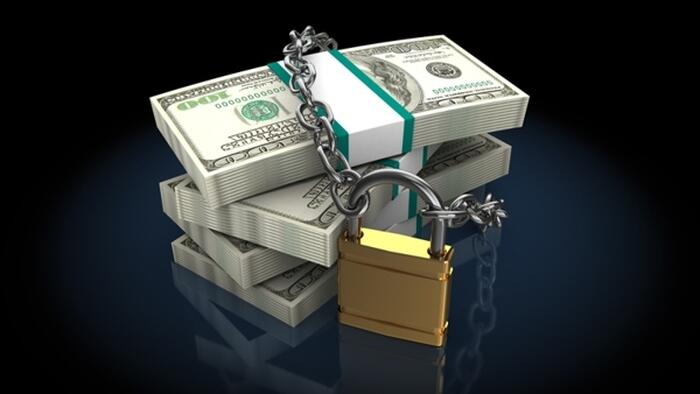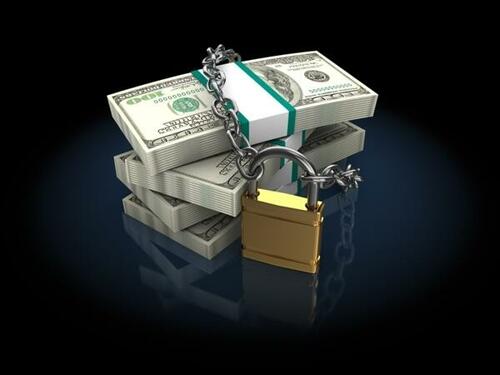


Authored by Nick Giambruno via InternationalMan.com,
Weekends and holidays are the perfect time to catch people off guard…
Like a street thug committing a mugging, capital controls blindside most people—otherwise, they wouldn’t be effective.
The government declares a surprise bank holiday and shuts down all the banks—mere hours after denying any such plans.
Then come the capital controls, preventing citizens from moving their money out of the country.
Cash-sniffing dogs—less friendly than drug-sniffing ones—suddenly appear at airports and border crossings.
At that point, your money is like a lobster in a trap. It doesn’t take much imagination to guess what comes next.
Once a desperate government has your money within reach, it will find a way to take as much of it as possible.
Don’t be shocked if your local currency suffers a massive devaluation, your bank deposits are suddenly worth a fraction of yesterday’s value, or an emergency tax is imposed.
Whatever the method or excuse, the outcome is always the same: a wealth transfer from you to the government.
This familiar pattern has unfolded in countless countries in recent years. No one should be surprised the next time it happens.
Governments facing financial trouble almost certainly resort to capital controls—a desperate, misguided solution with devastating consequences for ordinary people.
Just look at the recent history: Argentina, Lebanon, Venezuela, Iceland, Greece, Cyprus, Turkey, Russia, Ukraine, China, India, South Korea—and many more—have all imposed capital controls.
The lesson? Capital controls can happen anywhere, anytime.
Though unthinkable to most Americans, there’s a high chance they’re coming to the US. They’ve happened before—and could happen again soon.
Remember, in 1933, President Roosevelt’s Executive Order 6102 forced Americans to exchange their gold for US dollars under threat of a 10-year prison sentence and a $10,000 fine (over $235,000 in today’s debased confetti).
The official exchange rate? Unfavorable, of course—amounting to a 41% confiscation of purchasing power.
The US government then banned private ownership of gold bullion for 42 years—only allowing the plebs to legally own it again in 1975.
This isn’t speculation. It’s historical precedent. And history shows governments, especially in crisis, reach for capital controls.
Today, it’s clear the fiat currency system, centered on the US dollar, is crumbling.
Since Nixon severed the dollar’s last tie to gold in 1971, we’ve endured over 50 years of this experiment. Like spoiled milk left far past its expiration date, the fiat system has long outlived its shelf life.
Even the people running the system can see it—and they’re openly discussing what comes next.
That’s why there’s so much talk about resetting the monetary system… and without question, capital controls will be part of it.
All it takes is a crisis—real or manufactured—or a convenient excuse. Just a stroke of the president’s pen on a new executive order, and it’s done.
Expect it to happen.
Capital controls are government-imposed restrictions on how people can use their money—an affront to anyone who values property rights and a free society.
Here’s how they work…
Governments may allow people to buy foreign currency (or gold) only at an “official” rate—which they set. Unsurprisingly, it’s always less favorable than the real, free-market rate. The gap between the two is nothing more than a wealth transfer to the government.
Another common tactic? Hefty taxes on international money transfers or foreign asset purchases.
Sometimes, governments go further—outright banning ownership of foreign assets or prohibiting any transfer of wealth outside the country.
No matter the form, capital controls share one goal: trap money within national borders to make it easier for the government to seize.
Of course, these measures come with a propaganda blitz designed to gaslight the public into believing capital controls are “necessary” to protect the average citizen.
Expect politicians to spin disingenuous narratives that cast them as saviors rather than aggressors.
And the mainstream media? They’ll echo these lies, demonizing anyone who dares oppose capital controls as “disloyal” or worse.
Capital controls are always a prelude to something worse.
Once governments trap money inside a country, wealth confiscation is usually just hours away. Anything they don’t steal immediately, they lock in for future grabs.
That’s why you must act before capital controls are imposed.
How much time do you have?
No one can say for sure—but acting well in advance is essential. It’s better to be a year early than a minute late.
Still, there’s one common warning sign I’ve noticed in every case of looming capital controls: It’s like someone waving a giant red flag…
A government official denying that capital controls are being considered.
Whenever a central banker or politician insists something “won’t happen,” you can almost bet it will—and soon.
In bureaucrat-speak, “No, of course not” usually means “It could happen tomorrow.”
As the old saying goes:
“Believe nothing until it has been officially denied.”
These denials aren’t random—they’re calculated. Politicians and central bankers must catch the public off guard to achieve their goals.
So when you hear the official denial, take it as your final warning: You likely have only hours left to act.
The solution is simple.
Move some of your savings outside your home country so it’s not trapped when the government imposes capital controls. You’ll have your wealth safely waiting for you on the other side.
Here are three practical ways to do that:
1. Open a foreign bank account.
Capital controls in your home country are unlikely to affect accounts held abroad. A foreign bank account ensures a portion of your wealth remains outside the reach of local authorities.
2. Invest in foreign real estate.
Real estate overseas is a powerful way to store significant capital. Your home government can’t easily seize property in another country—not without drastic measures, like an act of war.
3. Hold physical gold bullion in a non-bank vault abroad.
Storing gold in a wealth-friendly foreign jurisdiction—like Singapore, Switzerland, or the Cayman Islands—offers robust protection.
But here’s a critical warning: Do NOT store gold in a bank’s safe deposit box. Banks are prime targets when governments declare bank holidays or seize private assets. Instead, opt for private, non-bank vaults. Holding physical bullion in your possession or with a trusted vault provider ensures better security. (More details below.)
The dollar-based monetary system is unraveling—even the people running it know this.
They’re already preparing for what’s next with talks of a “reset.” And it’s virtually certain that capital controls will be part of the plan.
I believe this could unfold sooner than most expect—and when it does, it won’t be pretty.
We’re likely standing at the edge of a historic financial earthquake—one that could forever alter the US economy and become the biggest economic event of our lifetimes.
Yet, most people are clueless about what’s coming—and even fewer know how to prepare.
That’s why legendary investor Doug Casey and I released an urgent video revealing how to best store your gold.
Inside, we show you the most effective strategies to safeguard your savings from capital controls and looming wealth confiscations.
Capital controls are coming. Don’t be caught off guard. Click here to watch it now.

